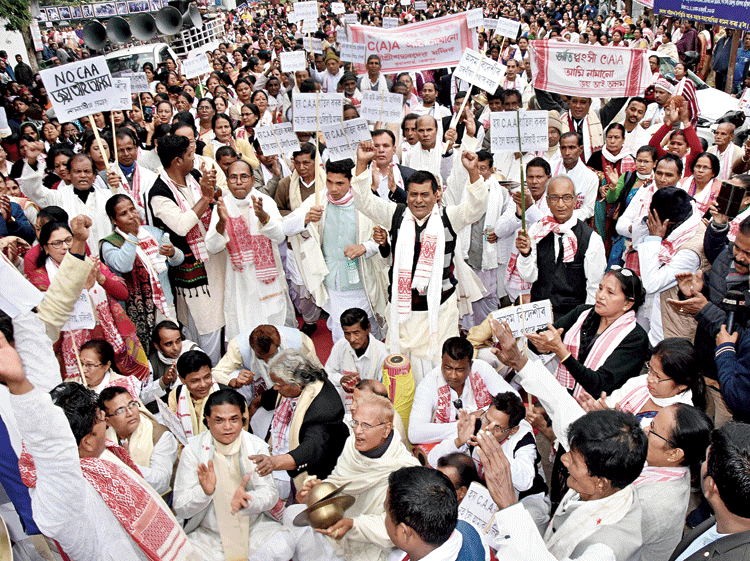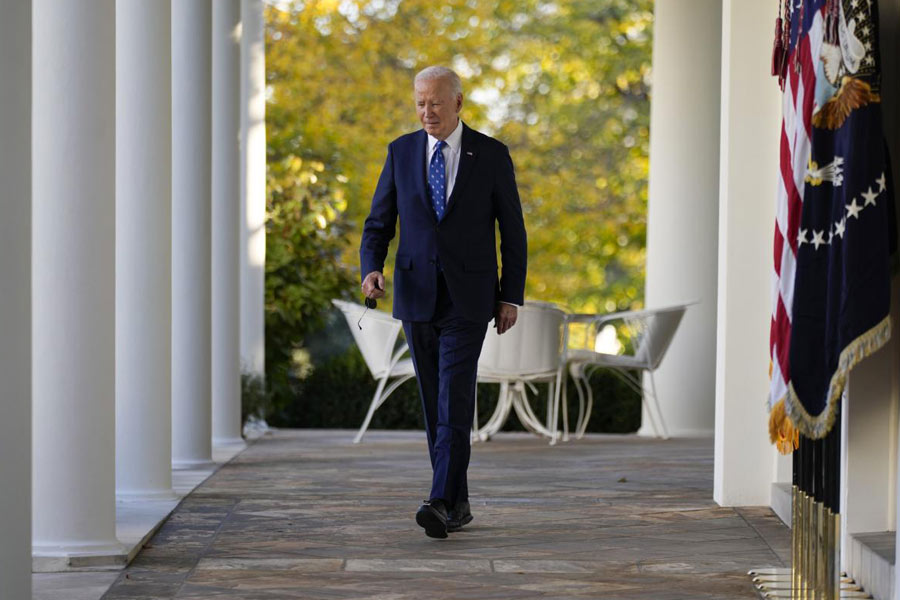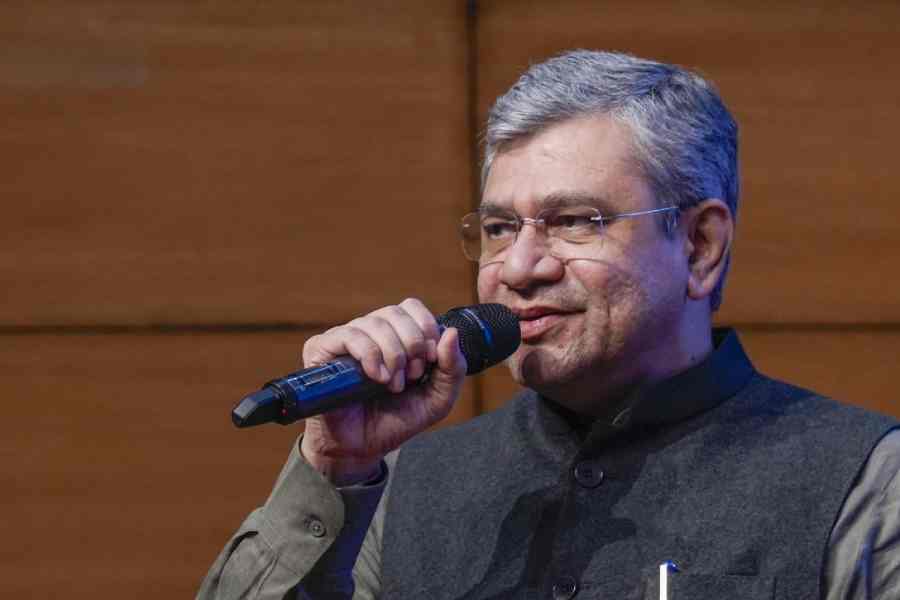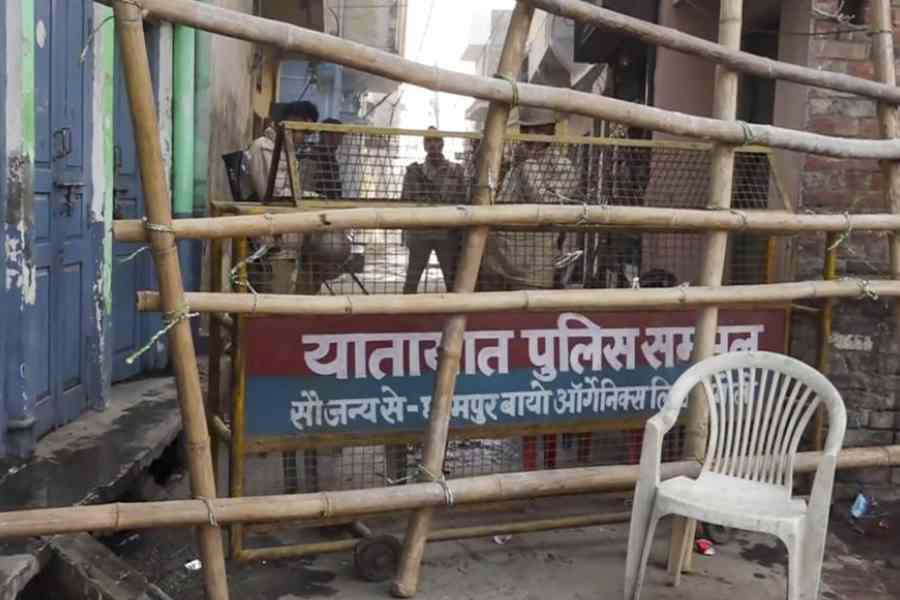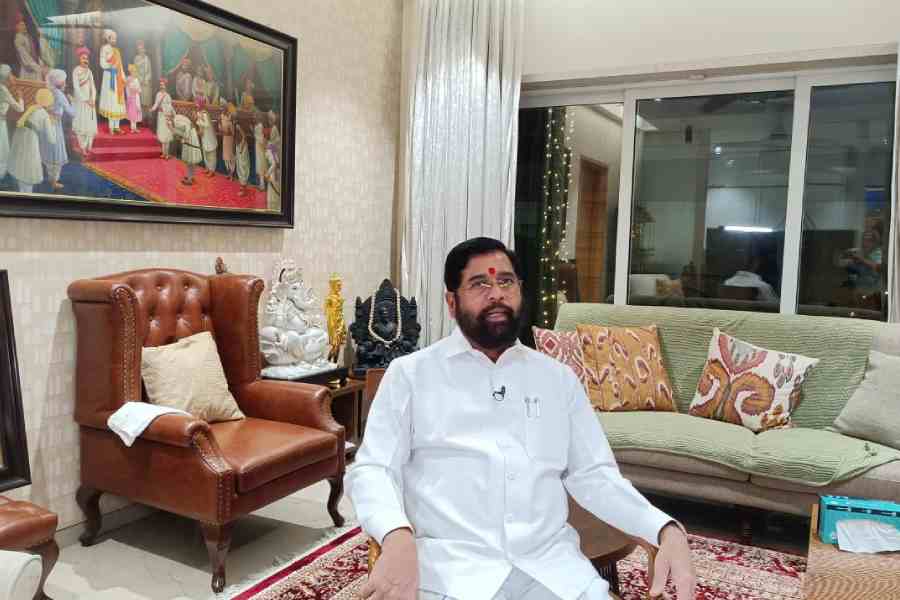The Asam Sahitya Sabha on Sunday doubted the sincerity of the state government in protecting the Assamese language, adding that Dispur was trying to divert the attention of the people from the sustained anti-Citizenship (Amendment) Act movement in the state.
On Saturday evening, the state cabinet announced steps aimed at protecting Assam’s land and language amid widespread protests against the amended citizenship law.
These include moving the Centre to get Article 345 of the Constitution amended to make Assamese the state language, except in the Bengali-dominated Barak Valley, Bodoland Territorial Area Districts (BTAD) and the three hill districts (Karbi Anglong, West Karbi Anglong and Dima Hasao).
Dispur also decided to bring a legislation in the next Assembly session, making it mandatory for Assamese to be taught as a compulsory subject in all English and vernacular medium schools, barring in Barak Valley, BTAD and the hill districts.
The Sabha general secretary, Padum Rajkhowa, said: “We feel if the government was sincere to preserve and promote Assamese it could have implemented the Assam Official Language Act, 1960, which covered the entire state. Moreover, the cabinet adopted a language policy submitted jointly by the Sabha and others this year, but this, too, has not been implemented. Therefore, we have reason to doubt the government’s sincerity. It is an attempt to divert attention from the ongoing protests against the CAA.”
Rajkhowa also pointed out the contradictory stands of the government. “On the one hand, it is pushing the CAA which will result in lakhs of Bengali-speaking people from Bangladesh acquiring citizenship and entering Assam and on the other, it is talking about preserving Assamese language. Our contention is if Bengali becomes the leading language in future then they too can seek official status in Assam. The best way forward will be to implement existing language policy which says Assamese is the official language and say no to CAA.”
A CMO source said by pushing for amendment to Article 345 of the Constitution which deals with language issues, the government is trying to ensure that Assamese remains the permanent state language even if the majority of people speaking the language declines in the future.
“We need to respect the sentiments of the people by securing the language, hence the amendment route,” he said.
The need to protect Assamese stems from the census 2011 data which revealed that the percentage of Assamese-speaking people declined to 48.38 in 2011 from 48.80 in 2001 while that of Bengali-speaking people increased to 28.91 in 2011 from 27.54 in 2001. The number of Hindi speakers increased to 6.73 per cent in 2011 as compared to 5.89 per cent in 2001. In 1991, the percentage of people speaking Assamese in Assam was 57.81 per cent and that of Bengali was 21.67 per cent.
Former Sabha president Nagen Saikia and former chief minister Prafulla Kumar Mahanta agreed with Rajkhowa.
They found the government’s move baffling, wondering why, instead of implementing the existing policy, the government was flagging the constitutional amendment move. They said it was a “bait” to divert attention from the anti-CAA protests.
“Constitutional amendment is not easy to come through as it requires two-thirds majority. Instead, the government should convey its commitment by implementing what it has,” Mahanta said.
However, the Coordination Committee of the Tribal Organisations of Assam (CCTOA) on Sunday welcomed the decision taken by the state cabinet to send a proposal to the Centre to make Assamese the state language. It also welcomed the decision to form autonomous councils for the Morans, Muttocks and Koch Rajbongshis.

